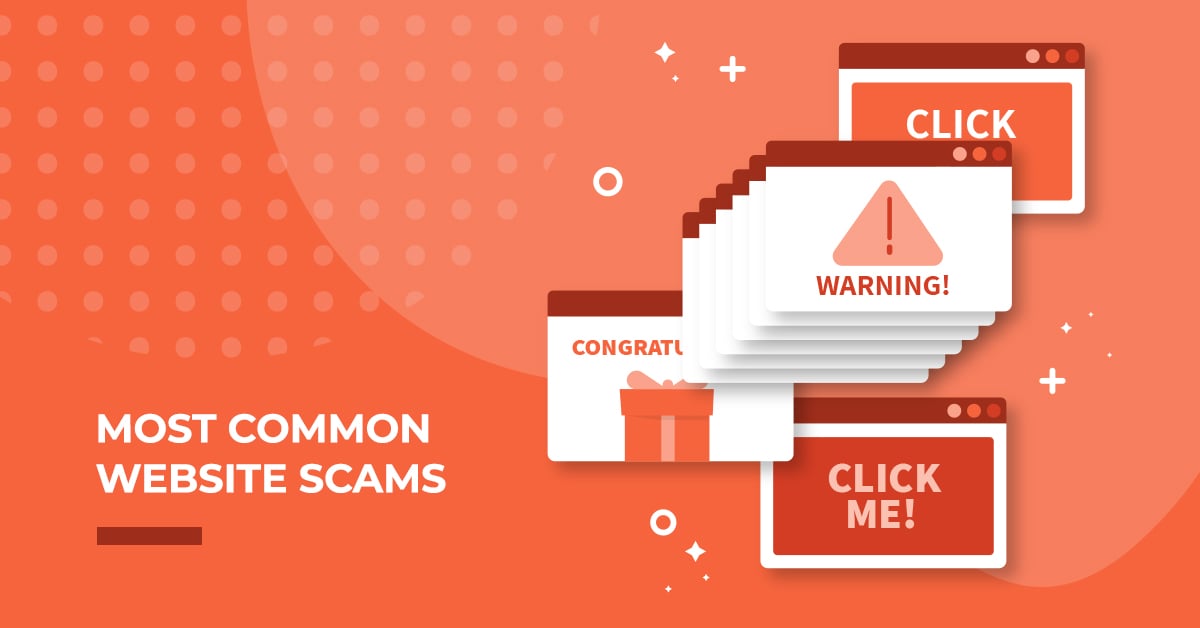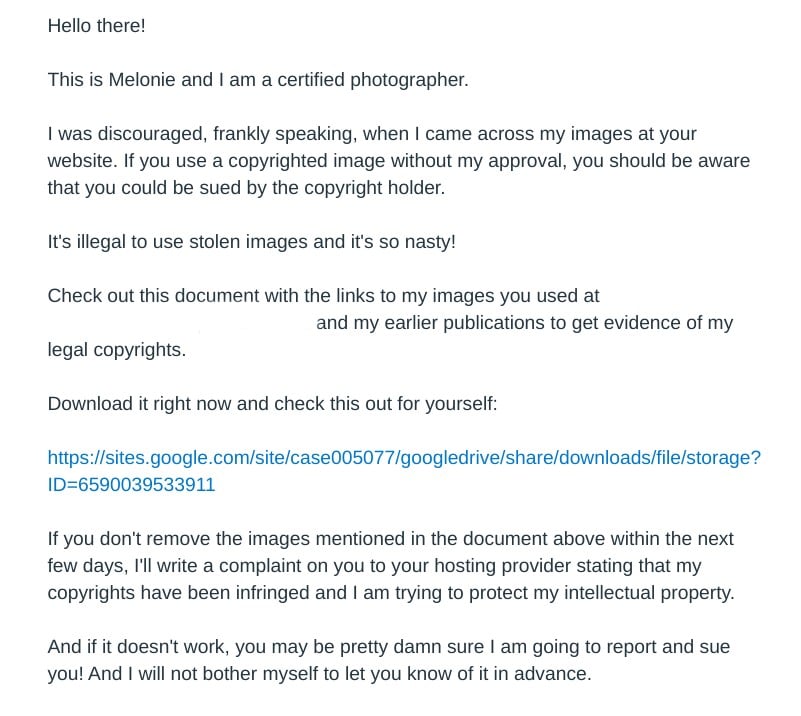Most Common Website Scams
 Countless scams lurk in the shadows of the web. While they present themselves in many forms, each one uses deception as a means of getting what it needs from its victims. Even with the constant advancement of the internet and technology, the scams simply evolve and adapt. If you don’t see some of them coming, it might be too late by the time you realize what’s happened.
Countless scams lurk in the shadows of the web. While they present themselves in many forms, each one uses deception as a means of getting what it needs from its victims. Even with the constant advancement of the internet and technology, the scams simply evolve and adapt. If you don’t see some of them coming, it might be too late by the time you realize what’s happened.
Knowledge is always your best line of defense. Equip your brain with the proper tools, and scams don’t stand a chance.
Here are five trending scams that you should be aware of:
 1. - Illegal Images Scam
1. - Illegal Images Scam
- The Scam: There are stolen images on your website, and they belong to the individual that has personally emailed you. If you do not take them down and/or pay for them, you will be sued.
- Their Strategy: Fear. The point is to scare you so that your judgement is compromised and you do exactly as told—all to avoid being sued.
- Their Goal: Click on the link provided for evidence of legal copyrights and/or pay money for the stolen images. (Extortion)
This one in particular has been brought to our attention a lot lately. The specifics of the threat and what the scam artists want may vary, but the Trojan Horse is consistent: stolen copyright images.
- What to Do: If you ever receive anything of the sort, don’t click on any of the links provided to you, and report the email as spam immediately.
As it often goes with websites, it’s impossible to be familiar with the origin of each image. These scam artists knowingly take advantage of this by claiming your site has images that don’t belong to you. More often than not, all of your images are either directly from your company, or purchased through stock image sites. However, if you ever have any questions about the origins of any images on your site, don’t hesitate to reach out to our support team, or your current web provider.
2. - Phishing
- The Scam: An individual you know (often a coworker or close relative) is reaching out to you via email asking for sensitive, personal information.
- Their Strategy: Trust. By impersonating someone you know, the scam artists want you to both trust that this is indeed the individual they are pretending to be, as well as trust the individual enough to give them what they ask for.
- Their Goal: Click on the link provided in the email that will direct you to a website where you can supply this trusted individual with whatever sensitive information they seek (i.e. usernames, passwords, credit cards, etc.).
- What to Do: Do not click on any links provided to you. In your email browser, find and click the ‘Report Phishing’ option. This will delete the email, as well as report it to your email provider.
 3. - Fake Job Offer
3. - Fake Job Offer
- The Scam: You have been offered a job via email, even though you didn’t apply for it. Oftentimes, this is a remote position that allows you to work from home, with a comfortable salary. The job requirements are generally vague, meaning almost anyone who receives the offer would qualify.
- Their Strategy: Opportunity. The options of working from home and receiving an increased salary are meant to open your eyes to an opportunity that seems too good to pass up.
- Their Goal: You willingly send over your bank account information so that your new employer can set you up with direct deposit.
- What to Do / How to Distinguish: First of all, always be wary if you receive an offer for a job you never applied for. Furthermore, the offer is generally for a very basic position that more often than not happens to be for a company overseas. Don’t reply to these emails or click on any provided links. Report these as spam immediately.
4. - Travel / Vacation Scam
- The Scam: You’ve just received an amazing vacation offer via email that’s too good to pass up. The location is likely somewhere exotic, and you have a limited amount of time to make up your mind before the offer expires. All you need to do is make one relatively small down payment (likely for tax purposes) and you’re on your way to paradise.
- Their Strategy: Temptation. The chance to go on a once-in-a-lifetime vacation is meant to lure you in by making the option of ‘no’ seem completely ridiculous.
- Their Goal: You give in to temptation and willingly send over your credit card or bank account information so you can make the downpayment for your getaway.
- What to Do: First of all, don’t give away any sensitive information. Do some research about the company you’ve been contacted by and look for reviews from other people. While it is possible that the offer might not be complete bogus, it’s always best to err on the side of caution.
In many cases, the vacation is quite real, just with a few hidden facts. For example: You receive an email or phone call that you’ve won a free trip to Disney World. What you find out later is that you’re being put up in a timeshare rather than a Disney hotel. To top that off, you have to go on a tour of the place and listen to a pitch about why you should buy-in and invest in the facility itself.
The real catch: You have to pay for all of the taxes, for every expense (Disney parks and timeshare included); you have to pay for your own airfare to get there; and worst of all, you’re only getting one free day at the Disney parks, even though you’re being put up in the timeshare for four nights. All things considered, it’s more worth it to plan your own trip to Disney and do things your own way. So even though this isn’t a total scam (in the sense of stealing your money and never hearing back from them), it is still very much a scam.
5. - Crowdfunding Scams
- The Scam: You come across a charity or cause worthy of donating to. The money is being raised through a crowdfunding platform (like GoFundMe) and it’s something that tugs at your heartstrings—to the point that you’d feel guilty for not donating.
- Their Strategy: Empathy. The cause that the money is being raised for is meant to resonate with you so you feel sorry for the individual(s) involved.
- Their Goal: You donate money to this cause because you’ve deemed it worthy and legitimate.
- What to Do: It can be difficult to tell what’s real and what’s fake. If you do suspect that you’ve come across a fake charity or cause, contacting the authorities is always an option. However, your best bet would be to contact the crowdfunding platform and alert them of your worries. If they find that the cause was indeed fraudulent, then your money will more than likely be returned to you.


